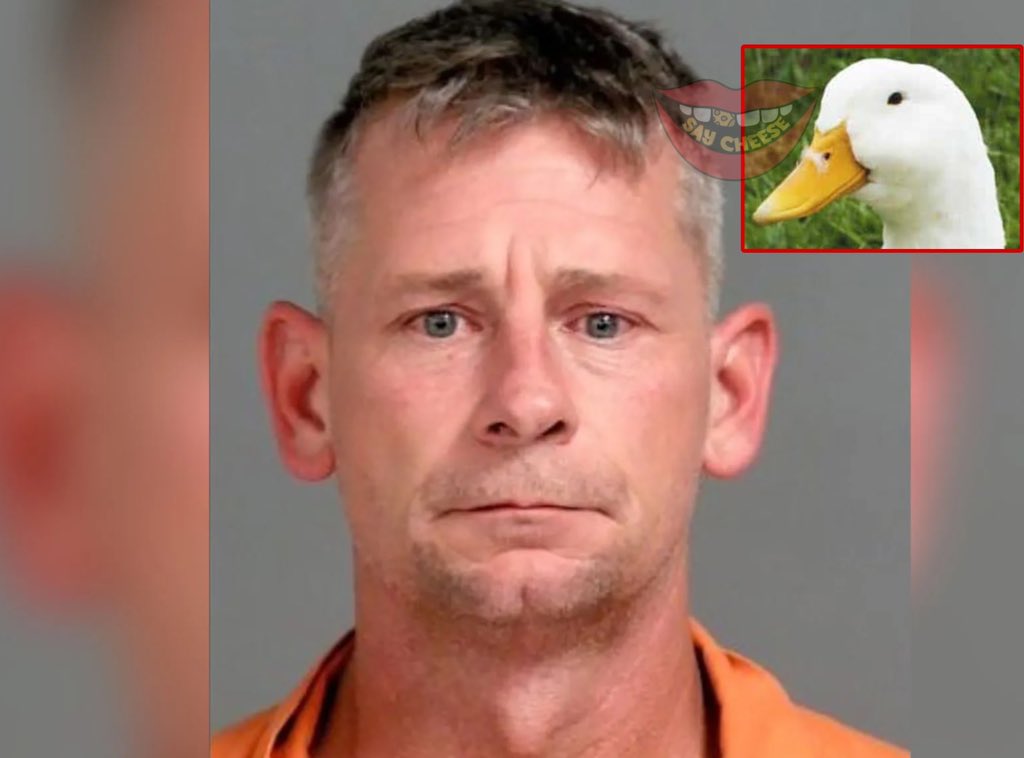There’s a name that’s been making waves in the world of conservation, and it’s Bradley Lister. If you’ve ever wondered why biodiversity matters or what’s happening to our planet’s wildlife, this guy’s research will blow your mind. His groundbreaking work on insect populations has turned heads, sparked debates, and given us a clearer picture of the ecological crisis we’re facing. So, buckle up because we’re diving deep into the life, career, and contributions of Bradley Lister.
You might not know him by name, but trust me, his findings have likely crossed your radar if you’ve been paying attention to environmental news. From alarming reports about insect declines to the broader implications of biodiversity loss, Bradley Lister is at the forefront of it all. His work isn’t just numbers and data; it’s a wake-up call for humanity to take action before it’s too late.
But who exactly is Bradley Lister? What drives him? And most importantly, why should you care? Well, stick around because we’re about to uncover everything you need to know about this ecological rockstar. So, let’s get started!
Read also:Did Jojo Siwa Die Debunking The Myths And Understanding The Truth
Biography: The Making of an Ecological Crusader
Before we dive into his groundbreaking research, let’s take a moment to understand the man behind the headlines. Bradley Lister is no ordinary scientist. He’s a professor, researcher, and a passionate advocate for biodiversity conservation. Born and raised in a small town with a big love for nature, Bradley’s journey into the world of ecology began early.
Growing up surrounded by forests and wildlife, Bradley developed a deep appreciation for the natural world. This passion eventually led him to pursue a career in biology, where he could combine his love for nature with scientific inquiry. His educational background includes degrees in ecology and evolutionary biology, which laid the foundation for his future research endeavors.
Data and Facts About Bradley Lister
| Full Name | Bradley C. Lister |
|---|---|
| Profession | Ecologist, Professor |
| Field of Study | Biodiversity, Insect Populations, Conservation Biology |
| Notable Work | Research on insect population declines |
| Affiliation | Universidad Nacional Autónoma de México |
Heading 1: The Insect Apocalypse – Is It Real?
Bradley Lister’s research has sparked a global conversation about the so-called “insect apocalypse.” But what does this mean exactly? Simply put, it refers to the alarming decline in insect populations worldwide. And guess what? It’s not just about bugs. Insects play a crucial role in ecosystems, from pollinating plants to serving as food for other animals. Without them, entire ecosystems could collapse.
Lister’s studies in Puerto Rico revealed shocking statistics. Over the past few decades, insect populations in the Luquillo rainforest have plummeted by as much as 98% in some areas. This isn’t just a local issue; it’s a global crisis. Scientists around the world are taking notice, and many are sounding the alarm bells.
Why Insects Matter
- Insects are essential pollinators, responsible for the reproduction of countless plant species.
- They form the base of many food chains, providing sustenance for birds, reptiles, and mammals.
- They help decompose organic matter, recycling nutrients back into the soil.
- Their decline has far-reaching consequences for both ecosystems and human societies.
Heading 2: The Science Behind the Decline
So, what’s causing this massive decline in insect populations? Bradley Lister and his team have identified several key factors. Climate change, habitat destruction, and pesticide use are among the biggest culprits. Rising temperatures and changing weather patterns disrupt insect life cycles, while deforestation and urbanization destroy their natural habitats.
Pesticides, especially neonicotinoids, have been linked to significant declines in bee populations. These chemicals not only harm bees but also other beneficial insects. It’s a vicious cycle that threatens the delicate balance of ecosystems worldwide.
Read also:Carys Zeta Douglas Date Of Birth A Comprehensive Look Into Her Life And Legacy
Climate Change and Its Impact
One of the most significant findings from Lister’s research is the impact of climate change on insect populations. Rising temperatures can alter the timing of life cycles, making it harder for insects to survive. For example, some species may emerge too early or too late, missing critical periods for feeding and reproduction.
Heading 3: The Luquillo Rainforest Study – A Case Study
The Luquillo rainforest in Puerto Rico has become a focal point for Bradley Lister’s research. His studies here have provided some of the most compelling evidence of insect population declines. By comparing data from the 1970s to present-day observations, Lister and his team have painted a sobering picture of the situation.
What they found was staggering. Not only had insect populations dropped dramatically, but the entire food web had been disrupted. Birds that rely on insects for food were also in decline, highlighting the interconnectedness of ecosystems.
Lessons from Luquillo
- The Luquillo study underscores the importance of long-term ecological monitoring.
- It highlights the need for immediate action to address climate change and habitat loss.
- It serves as a warning for other regions facing similar threats.
Heading 4: The Role of Conservation in Stopping the Decline
Conservation efforts are crucial in reversing the trend of insect population declines. Bradley Lister advocates for a multi-faceted approach that includes habitat restoration, sustainable agriculture practices, and stricter regulations on pesticide use. By protecting natural habitats and promoting biodiversity-friendly practices, we can help ensure the survival of these vital creatures.
Community involvement is also key. Educating the public about the importance of insects and encouraging them to take action in their own backyards can make a big difference. Whether it’s planting native plants or reducing pesticide use, every small step counts.
Practical Steps for Conservation
- Support local conservation organizations working to protect insect habitats.
- Create pollinator-friendly gardens in your own yard.
- Advocate for policies that promote sustainable land use and reduce chemical inputs.
Heading 5: Bradley Lister’s Legacy – A Call to Action
Bradley Lister’s work has left an indelible mark on the field of ecology. His research has not only highlighted the urgency of the situation but also inspired others to take action. Through his dedication and passion, he has become a leading voice in the fight to preserve biodiversity.
But the battle is far from over. As Lister himself has said, “We’re at a tipping point, and the choices we make today will shape the future of life on Earth.” It’s up to all of us to heed his call and take steps to protect the natural world.
How You Can Help
- Stay informed about environmental issues and support scientists like Bradley Lister.
- Reduce your carbon footprint and advocate for climate action.
- Get involved in local conservation efforts and spread awareness about biodiversity loss.
Heading 6: The Broader Implications of Biodiversity Loss
The decline of insect populations is just one piece of a much larger puzzle. Biodiversity loss affects everything from food security to human health. As ecosystems unravel, the services they provide – like clean water, pollination, and climate regulation – are put at risk.
Bradley Lister’s research serves as a stark reminder of the interconnectedness of all living things. It’s a call to action for governments, businesses, and individuals to work together to address the root causes of biodiversity loss.
What’s at Stake?
- Loss of biodiversity threatens the stability of ecosystems and the services they provide.
- It increases the risk of pandemics as human-wildlife interactions become more frequent.
- It exacerbates the effects of climate change, making it harder for ecosystems to adapt.
Heading 7: The Future of Ecology – Where Do We Go From Here?
As we look to the future, the role of scientists like Bradley Lister becomes even more critical. Their research provides the foundation for policy decisions and conservation strategies. But it’s not just about science; it’s about changing the way we interact with the natural world.
The challenge is daunting, but not insurmountable. With the right combination of science, policy, and public engagement, we can create a future where biodiversity thrives. It’s a future worth fighting for, and Bradley Lister is leading the charge.
Key Takeaways
- Biodiversity loss is a global crisis that requires immediate attention.
- Scientists like Bradley Lister are providing the data and insights needed to address the issue.
- Individual actions, combined with systemic changes, can make a difference.
Heading 8: Challenges and Controversies in Conservation
Conservation isn’t without its challenges. There are debates over the best approaches, conflicts of interest between economic development and environmental protection, and resistance to change. Bradley Lister has faced his share of criticism, but he remains steadfast in his commitment to the cause.
The controversy surrounding pesticide use, for example, highlights the tension between agricultural productivity and environmental health. Finding a balance that benefits both humans and nature is no easy task, but it’s a challenge that must be tackled head-on.
Navigating the Challenges
- Encourage dialogue between scientists, policymakers, and stakeholders.
- Support research that seeks innovative solutions to conservation challenges.
- Empower communities to take ownership of their natural resources.
Heading 9: The Importance of Public Awareness
Raising public awareness is essential for driving change. Bradley Lister’s work has brought the issue of insect population declines to the forefront of public consciousness. By sharing his findings through media outlets and public talks, he has helped demystify complex scientific concepts and make them accessible to a wider audience.
Education is key. The more people understand the importance of biodiversity, the more likely they are to take action. Whether it’s through formal education programs or informal learning opportunities, increasing awareness can lead to positive change.
Spreading the Word
- Utilize social media platforms to share information and engage with a broader audience.
- Collaborate with educators to integrate biodiversity topics into school curriculums.
- Host community events that celebrate nature and encourage conservation efforts.
Heading 10: The Path Forward – A Collective Effort
The path forward is clear, but it requires a collective effort from all of us. Scientists like Bradley Lister are leading the way, but they can’t do it alone. Governments, businesses, and individuals all have a role to play in protecting biodiversity and ensuring a sustainable future.
So, what can you do? Start by educating yourself and others about the importance of biodiversity. Take action in your own life to reduce your environmental impact. And most importantly, support the scientists and organizations working tirelessly to protect our planet.
Final Thoughts
Bradley Lister’s work is a testament to the power of science to drive change. His research has opened our eyes to the alarming reality of insect population declines and the broader implications for biodiversity. But it’s also a reminder of the resilience of nature and the potential for positive change.
As we move forward, let’s take inspiration from Bradley Lister and the countless others working to protect the natural world. Together, we can create a future where biodiversity thrives, and ecosystems flourish. It’s a future worth fighting for, and it starts with each one of us.
Conclusion: Take Action Today
So, there you have it – the story of Bradley Lister and his groundbreaking work in the field of ecology. His research has shed light on one of the most pressing issues of our time: the decline of insect populations and the broader implications for biodiversity. But knowledge is only the first step. Now it’s time to take action.
Whether it’s through supporting conservation efforts, reducing your environmental impact, or simply spreading awareness, every small action counts. So, what are you waiting for? Join the movement and help create a better future for all living things. And don’t forget to share this article with your friends and family – the more people who know, the better!
Table of Contents


